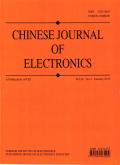通过块对角分解进行子空间聚类
IF 1.6
4区 计算机科学
Q3 ENGINEERING, ELECTRICAL & ELECTRONIC
引用次数: 0
摘要
子空间聚类是通过学习块对角自表达矩阵来实现的。这种块对角结构会严重影响聚类的准确性,但要获得这种结构却相当困难。本文提出了一种新颖有效的子空间聚类模型,即通过块对角分解的子空间聚类(SCBD),它能同时捕捉块对角结构并获得聚类结果。在我们的模型中,引入了严格的块对角分解,直接追求与 $k$ 聚类相对应的 $k$ 块对角结构。在这种新颖的分解中,自表达矩阵被分解为块指示矩阵,以显示每个样本所属的聚类。在严格的块对角分解的基础上,提出了块对角移动来捕捉局部的簇内结构,移动同一簇内的样本以获得更小的距离,从而获得更多的聚类判别特征。在合成数据库和真实数据库上的大量实验结果表明,SCBD 优于其他最先进的方法。本文章由计算机程序翻译,如有差异,请以英文原文为准。
Subspace Clustering via Block-Diagonal Decomposition
The subspace clustering has been addressed by learning the block-diagonal self-expressive matrix. This block-diagonal structure heavily affects the accuracy of clustering but is rather challenging to obtain. A novel and effective subspace clustering model, i.e., subspace clustering via block-diagonal decomposition (SCBD), is proposed, which can simultaneously capture the block-diagonal structure and gain the clustering result. In our model, a strict block-diagonal decomposition is introduced to directly pursue the
$k$
block-diagonal structure corresponding to
$k$
clusters. In this novel decomposition, the self-expressive matrix is decomposed into the block indicator matrix to demonstrate the cluster each sample belongs to. Based on the strict block-diagonal decomposition, the block-diagonal shift is proposed to capture the local intra-cluster structure, which shifts the samples in the same cluster to get smaller distances and results in more discriminative features for clustering. Extensive experimental results on synthetic and real databases demonstrate the superiority of SCBD over other state-of-the-art methods.
求助全文
通过发布文献求助,成功后即可免费获取论文全文。
去求助
来源期刊

Chinese Journal of Electronics
工程技术-工程:电子与电气
CiteScore
3.70
自引率
16.70%
发文量
342
审稿时长
12.0 months
期刊介绍:
CJE focuses on the emerging fields of electronics, publishing innovative and transformative research papers. Most of the papers published in CJE are from universities and research institutes, presenting their innovative research results. Both theoretical and practical contributions are encouraged, and original research papers reporting novel solutions to the hot topics in electronics are strongly recommended.
 求助内容:
求助内容: 应助结果提醒方式:
应助结果提醒方式:


